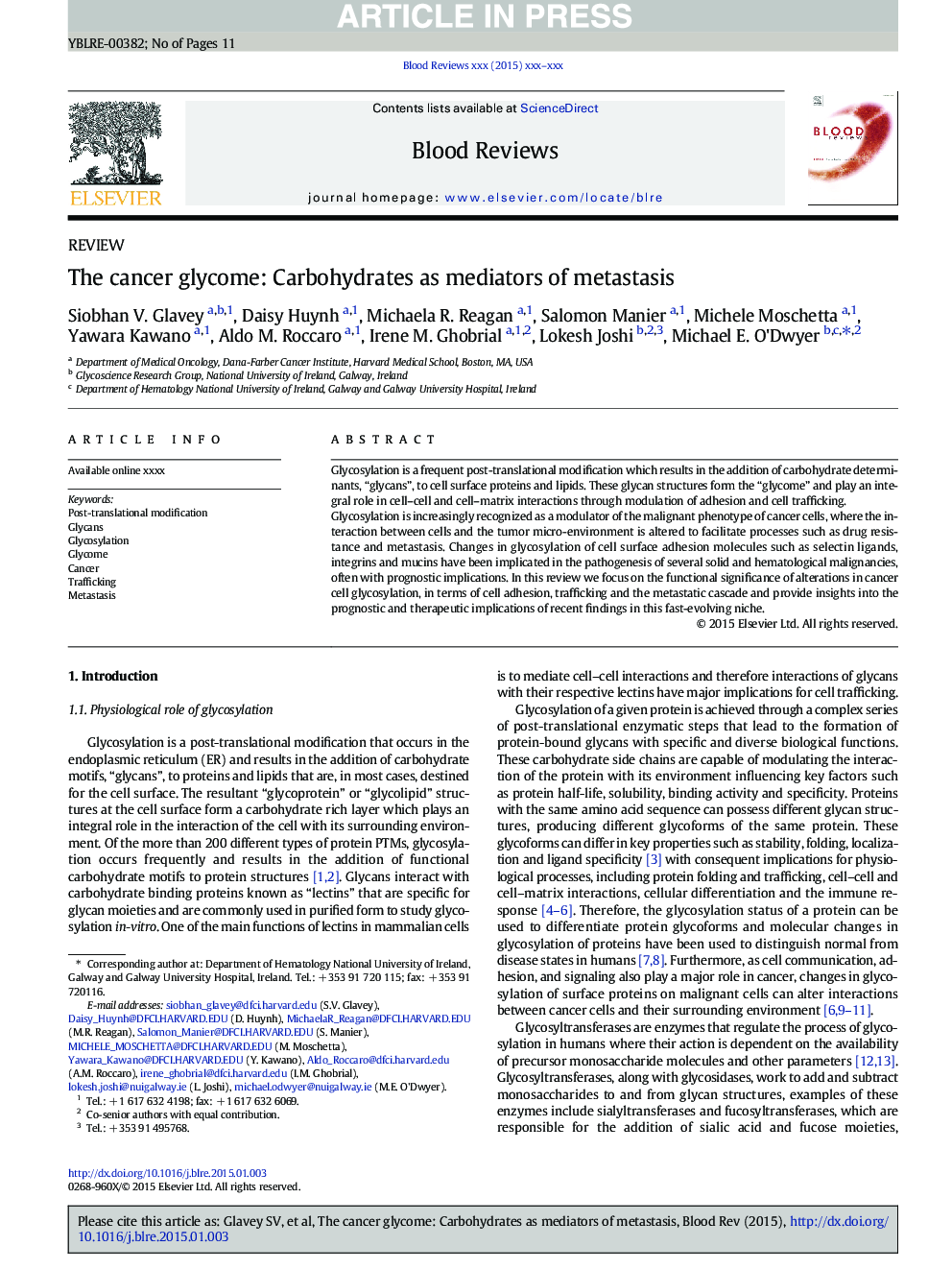| Article ID | Journal | Published Year | Pages | File Type |
|---|---|---|---|---|
| 10895747 | Blood Reviews | 2015 | 11 Pages |
Abstract
Glycosylation is increasingly recognized as a modulator of the malignant phenotype of cancer cells, where the interaction between cells and the tumor micro-environment is altered to facilitate processes such as drug resistance and metastasis. Changes in glycosylation of cell surface adhesion molecules such as selectin ligands, integrins and mucins have been implicated in the pathogenesis of several solid and hematological malignancies, often with prognostic implications. In this review we focus on the functional significance of alterations in cancer cell glycosylation, in terms of cell adhesion, trafficking and the metastatic cascade and provide insights into the prognostic and therapeutic implications of recent findings in this fast-evolving niche.
Related Topics
Life Sciences
Biochemistry, Genetics and Molecular Biology
Cancer Research
Authors
Siobhan V. Glavey, Daisy Huynh, Michaela R. Reagan, Salomon Manier, Michele Moschetta, Yawara Kawano, Aldo M. Roccaro, Irene M. Ghobrial, Lokesh Joshi, Michael E. O'Dwyer,
